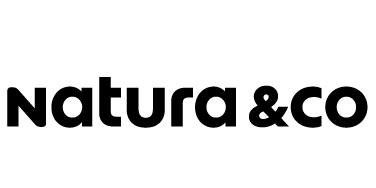



Natura &Co

São Paulo, Brazil
November 2020
Personal care products
Manufacturing
Argentina,
Australia,
Brazil,
Chile,
Colombia,
Malaysia,
Mexico,
Peru,
United Kingdom,
United States
Natura &Co is a global, purpose-driven, multi-channel, and multi-brand cosmetics group which includes Avon, Natura, The Body Shop, and Aesop. These four trailblazing, socially conscious, iconic global beauty brands, are each unique in mission and spirit, yet connected by a common goal of shaping a better, more caring would. In June 2020, Natura &Co announced its Commitment to Life sustainability vision. A comprehensive plan to tackle some of the world’s most pressing issues, including the climate crisis and protecting the Amazon, defending human rights, and embracing circularity and regeneration by 2030. Three of the four companies of Natura &Co are B Corp certified. Natura, Natura &Co´s founding company, became the world’s largest publically listed company to achieve B Corp status in 2014 and scored 153.0 points on recertifications in 2020. When The Body Shop became a B Corp in 2019 scoring 82.6, it also became the biggest B Corp to be founded by a woman - Dame Anita Roddick. Aesop is the latest company in the Natura &Co family to receive certification in November 2020 with a score of 87.1. As part of its 2030 Sustainability goals, Natura &Co have committed to help its most recent acquisition Avon, verify its impact by 2023, and achieve B-Corp certification by 2026.
Overall B Impact Score
Governance 17.2
Governance evaluates a company's overall mission, engagement around its social/environmental impact, ethics, and transparency. This section also evaluates the ability of a company to protect their mission and formally consider stakeholders in decision making through their corporate structure (e.g. benefit corporation) or corporate governing documents.
Governance 17.2
Governance evaluates a company's overall mission, engagement around its social/environmental impact, ethics, and transparency. This section also evaluates the ability of a company to protect their mission and formally consider stakeholders in decision making through their corporate structure (e.g. benefit corporation) or corporate governing documents.
Workers 24.6
Workers evaluates a company’s contributions to its employees’ financial security, health & safety, wellness, career development, and engagement & satisfaction. In addition, this section recognizes business models designed to benefit workers, such as companies that are at least 40% owned by non-executive employees and those that have workforce development programs to support individuals with barriers to employment.
Community 31.4
Community evaluates a company’s engagement with and impact on the communities in which it operates, hires from, and sources from. Topics include diversity, equity & inclusion, economic impact, civic engagement, charitable giving, and supply chain management. In addition, this section recognizes business models that are designed to address specific community-oriented problems, such as poverty alleviation through fair trade sourcing or distribution via microenterprises, producer cooperative models, locally focused economic development, and formal charitable giving commitments.
Environment 34.9
Environment evaluates a company’s overall environmental management practices as well as its impact on the air, climate, water, land, and biodiversity. This includes the direct impact of a company’s operations and, when applicable its supply chain and distribution channels. This section also recognizes companies with environmentally innovative production processes and those that sell products or services that have a positive environmental impact. Some examples might include products and services that create renewable energy, reduce consumption or waste, conserve land or wildlife, provide less toxic alternatives to the market, or educate people about environmental problems.
Customers 2.2
Customers evaluates a company’s stewardship of its customers through the quality of its products and services, ethical marketing, data privacy and security, and feedback channels. In addition, this section recognizes products or services that are designed to address a particular social problem for or through its customers, such as health or educational products, arts & media products, serving underserved customers/clients, and services that improve the social impact of other businesses or organizations.